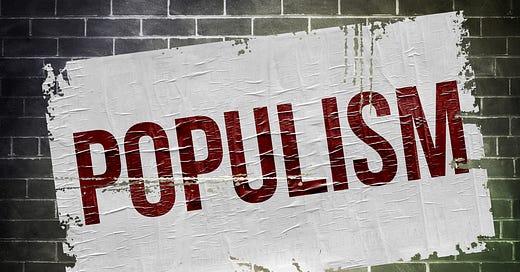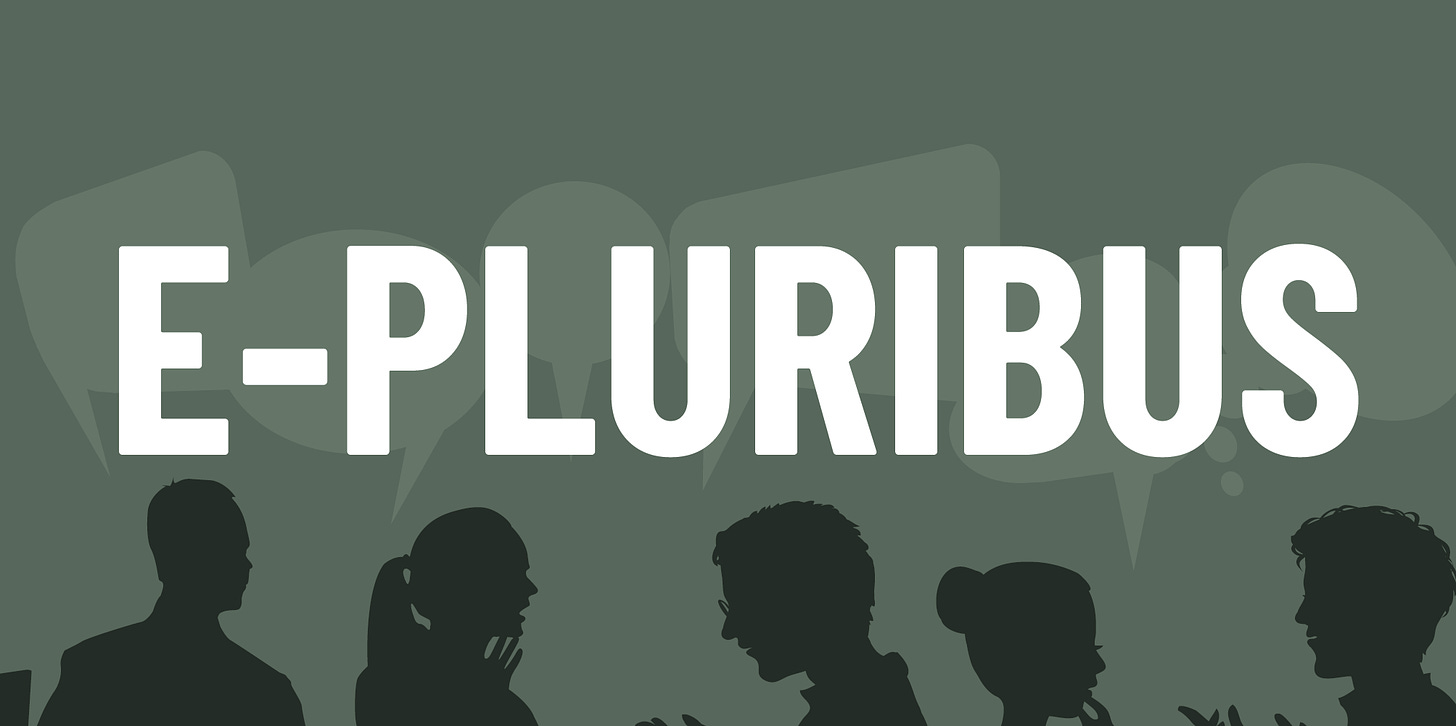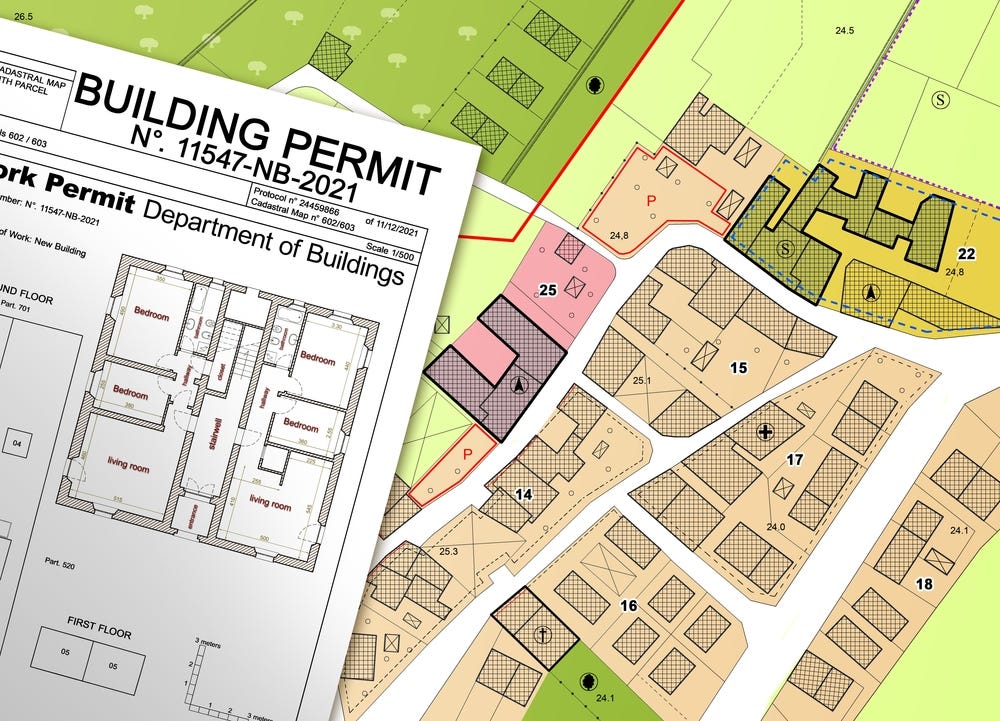E-Pluribus | October 5, 2022
What populism gets right and what it doesn't, zoning and "racial equity," and when preferences backfire.
A round-up of the latest and best writing and musings on the rise of illiberalism in the public discourse:
Robert Tracinski: Do the Populists Have a Point?
Whatever one thinks of the current wave of populism and its potential dangers to society, Robert Tracinski at Discourse Magazine says it’s not as if the concerns of populists aren’t valid. Rather, Tracinski argues that the very liberal institutions the populists tend to denigrate are the key to reining in the elites that populists tend to blame for the mess we are in.
In reality, liberal institutions were and are the actual means for reining in foolishness and corruption among the elites.
None of these problems are new. Before the founding of America, a characteristic feature of aristocratic and monarchical governments was the formation of cabals of court insiders who exploited special privileges. Rather than being something the liberal political system failed to anticipate, this was in fact precisely what it was designed to protect against by the founders of the American republic.
The liberal institution of the free market works to prevent businessmen from enriching themselves by gaining the favor of corrupt politicians, as they did in the notorious case of the South Sea Bubble, a business-government partnership in early 18th century Britain that never did much actual business but managed to set off a massive speculative bubble among credulous shareholders. Free markets are also meant to prevent politicians from coercing the support of private businesses by making them fear disapproval from their political masters—whether that takes the form of Democratic politicians “jawboning” social media companies about whom to eject from their platforms, or Republican governors threatening to use their regulatory powers against companies that oppose their favored legislation.
To say that we need more government coercion as the answer to previous government interference—the argument offered by nationalist conservatives—is merely an attempt to swap out one of these sets of would-be political masters for another.
The liberal institution of a free press serves to subject political leaders to scrutiny and require them to justify their views in answer to their critics. Much of the crying about “free speech” among the populists, however, is a demand that they be shielded from criticism. [. . .]
Read it all here.
Christian Britschgi: D.C. Zoning Officials Prepare a 'Racial Equity Tool' To Guide Zoning Decisions
The concept of “racial equity” has gained prominence in recent years and now the Washington DC Zoning Commission is getting into the act. Christian Britschgi of Reason reports that the commission is adding another layer to the zoning process that will evaluate proposed projects not simply on the basis of fairness and potential public benefit, but for the impact on racial equity as well.
The district's Zoning Commission is currently workshopping a new "racial equity tool" that it will use to guide its decisions when considering changes to zoning code, rezoning properties, and approving some major projects.
The idea of incorporating a greater focus on racial equity into planning decisions has broad support within the district. In May 2021, the City Council unanimously supported requiring the Zoning Commission to evaluate its actions through a "racial equity lens" as part of a larger set of amendments to D.C.'s Comprehensive Plan.
To implement that requirement, the commission released a draft racial equity tool in April 2022 that will ask applicants needing the commission's approval to answer a long list of questions about how their proposed project might impact racial equity.
[ . . . ]
The tool has "language that's very ambiguous and is trying to check second and third order effects" of a project, says Michael Starnes, with the group DC YIMBYs (yes in my backyard). "Doing this on an individual lot basis is very hard." He added on Twitter an applicant could have to hire a sociologist, historian, and data scientist to answer all the questions in the tool.
[ . . . ]
In an email, D.C. Zoning Commission Director Sara Bardin said the commission could potentially reject a project for failing to advance racial equity in line with the Comprehensive Plan's goals. Less drastically, it could also condition approval of projects on providing certain amenities or public benefits to offset any negative equity impacts it might have.
Read it here.
Jason L. Riley: Racial Preferences Harm Their Beneficiaries, Too
Although the term affirmative action is seldom used these days, Jason Riley writes at The Wall Street Journal that the more popular characterization of such programs as diversity, equity, and inclusion has the same potential negative impact on those ostensibly being helped.
What happened in higher education after racial preferences were introduced is what social scientists refer to as “mismatching.” Black students were admitted to schools with academic credentials far below those of the average student in attendance. Subsequently, these black students struggled academically, dropped out at higher rates, or were more likely to switch to an easier major than they originally intended to study. These same students, in all likelihood, would have prospered at a less selective college where the same subjects are taught at a pace that matched their readiness. Instead, they were set up to fail at institutions that wanted them there to make the campus more racially diverse. Today, we have dozens of academic studies, including by the U.S. Commission on Civil Rights, that show the mismatching of students and schools is detrimental to learning.
Supporters of racial preferences worry that the high court will finally ban the practice, and they should worry because the plaintiffs have a strong case. In previous decisions, the Supreme Court has ruled that racial quotas are unconstitutional, but that race can be used as a factor in admissions provided that it isn’t the decisive factor and the objective is to attain a “diverse” student body. It’s long been clear that elite universities are abusing their discretion and violating those parameters. In a brief for the plaintiffs, Duke economics professor Peter Arcidiacono demonstrates that an applicant to Harvard with typical credentials has a 25% chance of admission if he’s Asian. But if you leave the credentials the same and change his race to black, the chance of admission climbs to 95%. For out-of-state applicants to UNC, the racial disparity in the chances of admission is even starker. Obviously, these schools are using race as the decisive factor.
Read the whole thing.
Around Twitter
Via Heterodox Academy, the Chinese Communist threat in US schools:




Colin Wright and the selective concern about free speech and censorship:




And finally, a montage of clips from Peter Boghossian’s conversations with students about changing one’s mind (or not):









